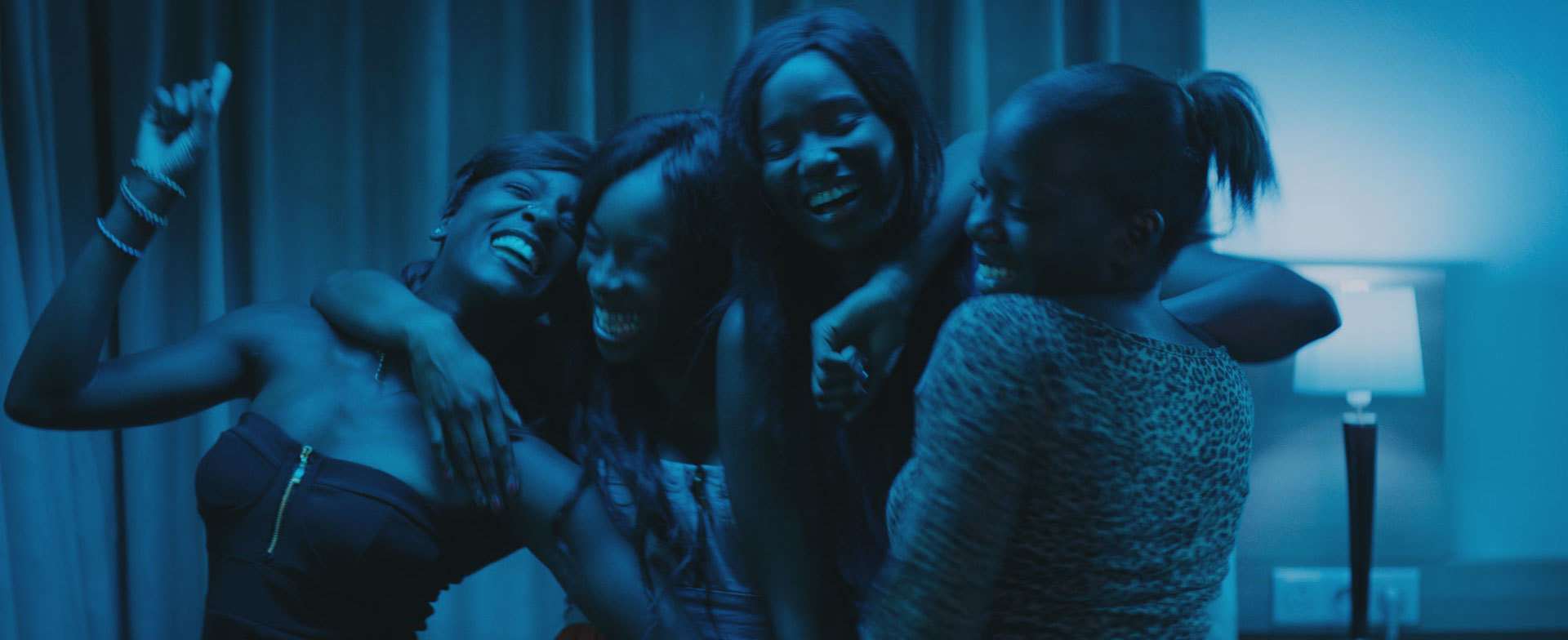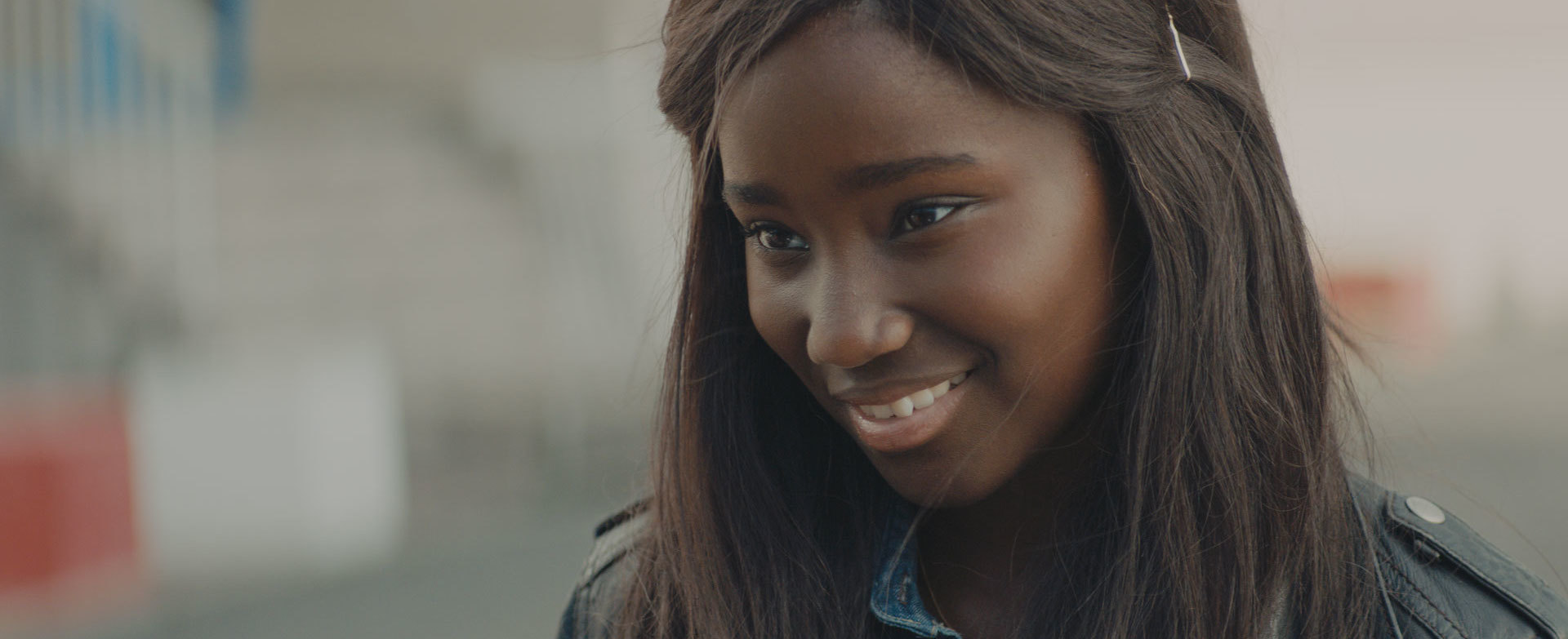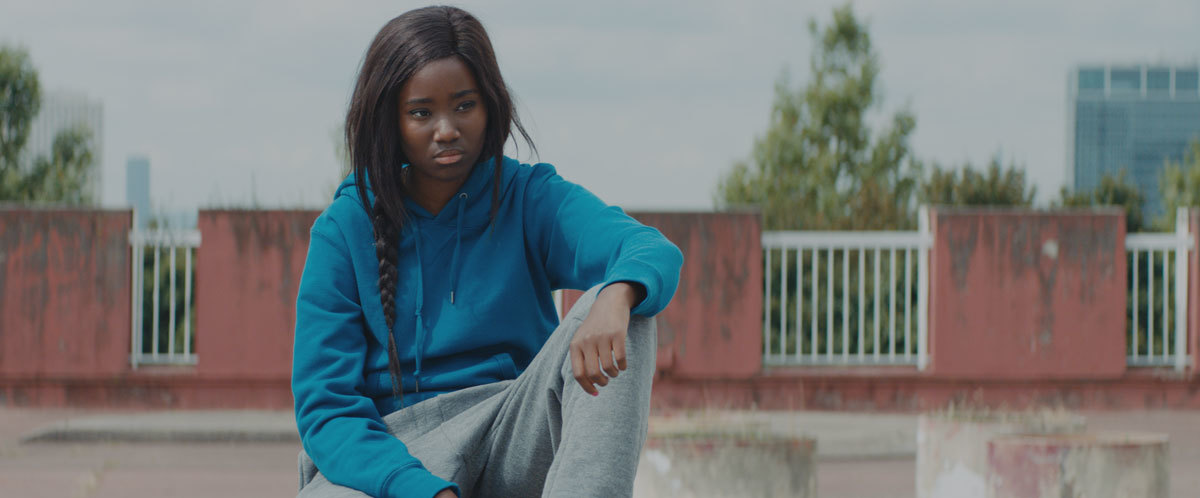In one of the most empowering scenes from cinema so far this year, four black girls from a Parisian banlieue book into a hotel room, squeeze into their dresses with the security tags still on and lip sync the night away to Rihanna’s Diamonds. The moment crystallises the themes of Girlhood, Céline Sciamma’s uber stylish but gritty portrayal of what it means to be young, female and black in the French capital.
In Karidja Touré, the film’s star, Sciamma has found her diamond. Karidja, 21, plays the shape shifting character of Marieme, who, discouraged from further learning by her teacher takes up with a tough girl gang. The film follows Marieme’s journey, negotiating female friendship, getting into fights with other gangs and navigating omnipresent male pressure. Discovered through street casting, Karidje and the three other non-professional stars have already caused a sensation on home turf in their representation of a Paris previously unseen on screen.
How did you get discovered?
In Paris we don’t have a lot of black actresses. To find them, they have to do it on the streets. I was in an amusement park with a friend and the casting director waited until I was on my own and came and introduced herself.
Was the Rihanna scene fun to shoot?
Yes, well it was Rihanna! We went into the set and everything was blue. When it fell on our skin it was very beautiful. We all wanted to play the role of singing the song as if in a playback.

Your character goes through a number of changes from being shy and childlike to tough and acting like a boy in order to survive. How did you approach those changes in the film?
I worked a lot with Céline before shooting and we worked without the camera to make me more confident and less shy. The different clothes and hair that my character changed into really helped me a lot as well. When I have to be like a boy Céline was always guiding me, telling me how to walk, how to have a low voice.
How do you feel when your character became one of the girl gang with their denim and slick, long hair?
It was really empowering. I knew that with the long hair I had to be more girly, more like a teenager. More like Rihanna and Beyonce. When I have the braids, I have to be more like a man. Everybody knows that hair can have a magic effect. In the film you see [the leader of the girl gang] Sylla’s father cuts her hair because she is in a fight; it’s to show her that hair is important. It’s something that happened in Africa; if you don’t listen to your parents and are just chatting with guys outside, they can cut your hair to lose your charm. Cutting of hair is to punish.
Did you recognise these girls from your life?
Yes, I recognised myself at the beginning. When I read the scene where my character is at school and the teacher didn’t want her to continue to study, to just go to work – that was something that happened in my life. So I was very happy that Céline put that in the movie to show that sometimes the teacher makes the choice for the pupil and they just see white and black and Arabic people in different lights. Or when we go shopping and the security guards follow us [simply because they are black] that was something that also happened in my life. I have a friend who has a big brother and he takes on the role of father like my character’s brother does in the film. He tells them to not go out or to not wear this dress, things like that.
Where did you see yourself or your identity in culture when you were young?
When I was growing up I didn’t know about French movies or actors. I would only watch American movies at the cinema because there you can find everybody, white people, black people and you can relate. When I go to see a movie I like to think ‘oh, this will be my character for all of the movie so I’m going to follow her through all of the movie’. In a French movie you can’t do that. We don’t see ourselves in it.
Did you want to be an actress when you were younger?
Yeah, when I was little I wanted to be in Harry Potter but it never happened. I never thought about being an actress in France but in L.A. where they have black actors and actresses. In France we only have Omar Sy and now he’s in the U.S. In my age group, we have nobody; it’s really empty.

Now there is you four…
Yes! I was really happy that the poster had four black actresses on the subway and on the streets. It was very strong. It was new; everybody was talking about it.
Why are those posters important?
I remember when I was little I didn’t see black models in magazines; I’d just see posters on the streets of Paris of white people. To walk around Paris and see black all over the place, it says: ‘we are here also, you see us in the subway, you meet us in the streets.’ But in the realm of cinema we didn’t exist.
Céline also didn’t want any slang in the film, right?
[laughs] Oh no, no, no. When we started to shoot the film she said, no LOL, no MDR [‘more de rire’ or ‘die laughing’]. So that was also not allowed. Sometimes we had to shoot again.
What’s your favourite fashion moment since Girlhood?
For the [French Oscars] Cesar Awards, which I was nominated for, I wore an Elie Saab dress. It was blue and if you wanted to find me, you’d find me directly. Everybody was wearing red or black but I was blue like the sky.
Is this your first time in London?
No, I came for my 20th birthday with friends. We went to a nightclub at Piccadilly Circus in front of Burger King. It was fun. We saw Big Ben, Buckingham Palace, Oxford Street and Topshop, of course, with the new collection of Cara Develingne.
Girlhood is out 8th May.
Credits
Text Colin Crummy
